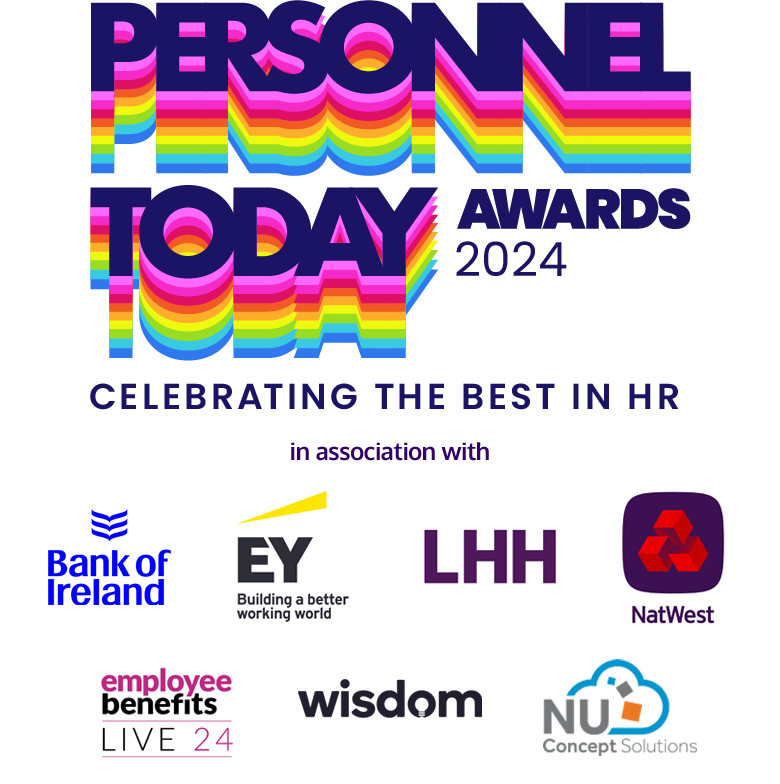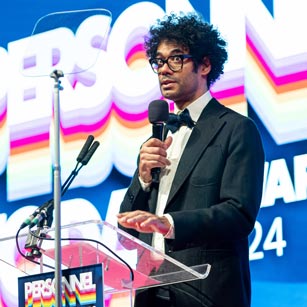Sanofi’s pioneering global scholarship programme caught the eye of the Personnel Today Awards judges who were impressed by the firm’s ambition to support under-represented communities, enrolling 100 students across five countries in its first year. We look at their winning entry and those of our other finalists.
WINNER
Sanofi
In 2023, healthcare company Sanofi introduced a groundbreaking global scholarship designed for individuals from traditionally underrepresented communities. This programme aims to enhance the diversity of its workforce and supports Sanofi’s goal of creating a more inclusive healthcare system. In its first year, the scholarship has enrolled 100 students across five countries with the help of 14 academic partners, and it is just beginning to make an impact.
The Sanofi NextGen Scholarship is a key part of the global initiative A Million Conversations. This seeks to rebuild trust in healthcare among underrepresented groups, including women, ethnic minorities, disabled people, and LGBTQ+ individuals. Trust is crucial in healthcare relationships, and many groups have lost this due to discrimination and poor service. For instance, Black mothers in the UK face a much higher risk of dying from pregnancy-related complications, for example. To address this, Sanofi conducted a major survey involving 24,000 people across 10 countries, revealing that marginalised groups often experience significant trust issues with healthcare.
The scholarship, supported by a €50 million commitment over eight years, provides financial aid, mentorship, leadership training, internships, and future job opportunities at Sanofi. It is open to all underrepresented groups and aims to create a global network of diverse future healthcare leaders. By working with leading educational institutions and investing heavily in these scholars, Sanofi is fostering a more inclusive healthcare workforce and improving representation within the industry.
RUNNERS-UP
AtkinsRéalis
Personnel Today Awards
All our 2024 winners revealed
View the 2024 photo gallery
The Personnel Today Awards 2025 open for entries around Easter
Sign up to keep updated
AtkinsRéalis employs more than 130 nationalities, with staff speaking 70 languages across six continents. But despite the global make up of its workforce, the engineering industry has traditionally lacked diversity. For example, in 2021, only 16.5% of engineers were women, and 11.4% were from ethnically diverse backgrounds. The company wanted to tackle this through an equality, diversity and inclusion (EDI) programme that would build a culture where everyone feels they belong, can be themselves, and reach their full potential.
In 2021, AtkinsRéalis launched the “Different Makes a Difference” program as part of its Environmental, Social, and Governance (ESG) strategy. The program was developed after an independent review and conversations with underrepresented groups. As a result of its efforts, AtkinsRéalis became the first engineering company to receive the Platinum accreditation from diversity benchmarking company Clear Assured in January 2024.
It has also exceeded its diversity targets for 2023 and set new ones for 2025. To ensure accountability, it has tied gender diversity targets to leadership and performance-related pay. Continuous employee engagement is achieved through comprehensive communication, including 28 webinars in 2023, many focusing on intersectional issues such as neurodiversity and LGBTQ+ inclusion.
Bank of Ireland
In 2023, Bank of Ireland set a goal to become a neuro-inclusive organisation, ensuring that everyone feels welcome and can thrive. The bank believes that embracing neurodiversity leads to better outcomes for everyone. To understand where it stood on this, it conducted internal and external research. Internally, a survey revealed that 5% of employees identify as neurodivergent, and engagement levels among these employees were below average. An assessment with consulting company Auticon rated the bank as “passive” in neuro-inclusion, showing that it was not yet actively promoting neuro-inclusive behaviours. Externally, a survey found that 1 in 10 adults in Ireland identify as neurodivergent, but only 20% believe their workplace supports them.
Bank of Ireland created a three-year plan, supported by the chief people officer and CEO. It involved raising awareness through learning programs such as NeuroAware and NeuroConfident; practical applications such as inclusive recruitment processes and workplace accommodations; and embedding neuro-inclusion into daily work practices. The strategy would also cover customer-focused initiatives, like partnering with Ireland’s National Autism Charity for training and supporting research on workplace inclusion.
The strategy has been well-received, with thousands of employees participating in training and engaging with the initiative. Bank of Ireland now aims to lead by example and help other organisations start their own neuro-inclusion journeys.
Grant Thornton UK
Accounting firm Grant Thornton aims to be fully inclusive and ensure that everyone is treated fairly in the workplace. Its resourcing principles are designed to foster a diverse and future-ready workforce, with inclusion at the core. With this in mind, it developed an inclusive resourcing strategy focused on sourcing, attracting, recruiting, and integrating a more diverse workforce.
The strategy began with an overhaul of the recruitment process, using data to identify areas needing improvement and implementing more inclusive practices. This included revising job descriptions, emphasising flexible working options, and creating inclusive interview tools. For those with disabilities, Grant Thornton introduced a positive action interview scheme that guarantees an interview if candidates meet the minimum criteria. The company has also provided disability training for its recruitment and HR teams, along with education on neurodiversity.
In its efforts to support gender diversity, Grant Thornton has diversified interview panels, reviewed job advertisements for language bias, and implemented a returner program to help those re-entering the workforce. It also avoids asking about current salaries to prevent gender and ethnicity pay gaps.
In addition, the firm has made significant strides in supporting black talent by offering additional coaching and collaborating with organisations such as 10,000 Black Interns. It also introduced measures to support LGBTQIA+ candidates, including inclusive job advert language and the option for candidates to select their gender and pronouns. Grant Thornton’s progress is evident in its diversity statistics, with notable improvements in the representation of ethnic minorities, women, and people with disabilities among its new hires.
Marsh McLennan with Ambitious about Autism
In 2021, Ambitious about Autism and Marsh McLennan UK began a four-year partnership aimed at improving the futures of autistic individuals. This collaboration was initiated following a concerning statistic that only 29% of autistic people were employed, the lowest rate among disabled groups, despite most being capable and eager to work. Marsh McLennan’s goal was to become a more autism-aware employer.
The partnership has set a high standard for inclusive employment, creating an Autism Confidence framework that other organisations can follow. This framework has included updated recruitment policies, extensive autism awareness training for managers and staff, modifications to workspaces, and the formation of a strategic Lived Experience advisory group. Additionally, there is a goal to fundraise £1 million.
To achieve ‘Autism Confidence’, Marsh McLennan UK focused on five key areas. They increased autism awareness through webinars and specialist training, supported neurodivergent colleagues with a dedicated advisory group and resources, and improved physical workspaces based on sensory assessments. Policies were reviewed for clarity and inclusiveness, and recruitment processes were adapted to better support autistic applicants. Notably, 22 autistic individuals were placed in jobs, with half of these roles becoming permanent.
The benefits of this partnership include enhanced employee engagement, successful fundraising efforts, and a stronger reputation in the insurance industry for inclusive employment. Marsh McLennan UK plans to continue building on these achievements and assess their impact on employee satisfaction and effectiveness.

Sign up to our weekly round-up of HR news and guidance
Receive the Personnel Today Direct e-newsletter every Wednesday

